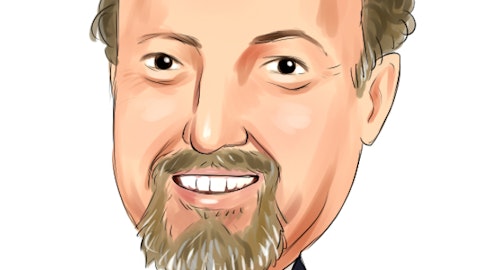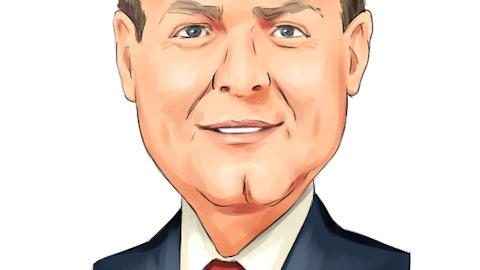David Regnery: Nigel, just to follow up on the labor concern. That’s not a concern for Trane Technologies. We’ve done a great job being able to track the right labor, we’re doing a great job. Our human resource department is doing just a fantastic job of training, creating career ladders for hourly associates, so we really want to be that destination location, not only for our salaried employees, but also our hourly employees and we’re doing a great job there.
Christopher Kuehn: Maybe I’ll add one more thing is just our Asia business, right as majority call it 90 plus percent commercial HVAC, and it’s driving high teens EBITDA margin. So I think it shows that we can really drive there for our businesses globally.
Operator: We’ll take our next question from Deane Dray with RBC Capital Markets.
Deane Dray: Thank you. Good morning, everyone. Doing really well, thank you. There’s a lot of discussion on backlog here just struck me is what happens on past due like, do you have to set realistic expectations with the customers on when they’ll actually get deliveries?
David Regnery: Yes, that is exactly why there’s elongated lead times right now. You do not want to disappoint a customer with delivery. Think about it. I mean, some of our products will use air handling as an example, if you’re constructing a building, okay, you could end up holding up an entire job if you’re late. And trust me, you don’t want to be on the other end of a phone call that has the whole building being slowed up because of your product. So we’re making sure that we’re providing realistic lead times to our customers, doesn’t mean we don’t have our past dues, we do, we track that very intensely, our plant managers drive that on a daily basis. But for the most part, you really have to give realistic dates as to when a customer can expect the product and you need to hit it. And that’s one of the key operational metrics that we look at it at a high level. And I could tell you, it happens at a very detailed level within our business.
Deane Dray: That’s real helpful. And as a follow up, I was really interested in your comment, just saying you’re trying to avoid situations with stranded inventory. How does that happen? And any comment on the whole new CA rollout?
David Regnery: Yes, it really it was associated, the comment was associated with the CA roll on.
Christopher Kuehn: And I think that there’s a little bit more complexity this time, we’re depending on where you’re located in the country. It’s an installed date for some manufacturing date. So we really worked with our independent wholesale distributors in the south, okay, because that’s really where the, for non-heat pump product where that was installed date, so we don’t want them to get stranded. So we help manage that situation. And we’re pretty good at this. I mean, we implement so many new products that phase in phase out as we refer to it, it is the second nature to us. So we just really helped our IWDS work through that process.
Operator: We will take our next question from Brett Linzey with Mizuho.
Brett Linzey: Hi, good morning, all. Hey, I just want to come back to the transport business, you guys have been outperforming there for quite some time. Looks like ’23 you got a lot of innovative solutions, new products coming to the market. I was hoping you could just put a finer point on the outgrowth expectation there. And then specifically on some of these new product launches, are you simply cannibalizing older equipment technology? Or are you actually increasing the total addressable market with some of these electrification offerings?





